Russia Is Creating a Threat of a Nuclear Catastrophe. This Time, not in Ukraine
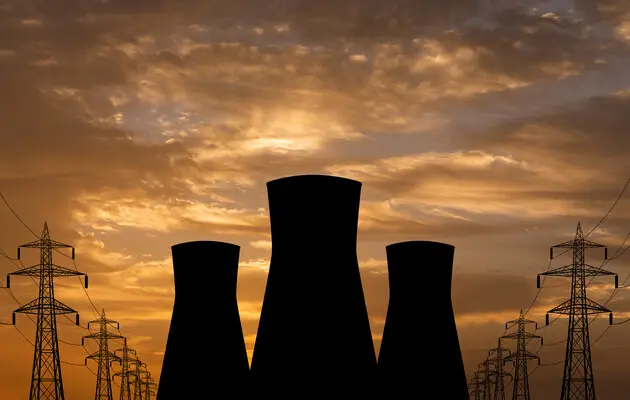
In a referendum held last Sunday in Kazakhstan, 71% of citizens who participated voted for the construction of a nuclear power plant (NPP) in the country.
It is still unknown who will build the nuclear power plant (NPP). But it is highly likely that the State Atomic Energy Corporation Rosatom will be responsible for the construction of the entire station or the installation of reactors, and Kazakhstan will pay for the work using a Chinese loan. On the one hand, this will be legal financial support for the Russian Federation in circumvention of sanctions. On the other hand, Moscow will receive another tool for implementing the policy of neocolonialism in Central Asia. We can see how this expansion is happening in the example of other countries where Russian reactors are located.
However, Central Asia is not the only region in the world where Russia uses not only soldiers from the private military company (PMC) Wagner, arms supplies and an aggressive information campaign, but also nuclear power plants as a means of expanding its influence.
In the last decade, the Russian Federation has been actively promoting projects to build nuclear power plants in Africa. According to Raian Koller, Director General of the regional office of the State Atomic Energy Corporation Rosatom in Central and Southern Africa, his company is ready to offer "a wide range of nuclear solutions that meet the diverse needs of African countries, including large-capacity nuclear power plants (LCNPPs), floating nuclear power plants (FNPPs) and small modular reactors (SMRs)."
The State Atomic Energy Corporation Rosatom is already building the El Dabaa nuclear power plant (NPP) in Egypt, which is scheduled to be commissioned in 2026. The Russian state corporation has also signed agreements "on cooperation in the peaceful use of nuclear energy" with two dozen African countries, namely Burundi, Ghana, Rwanda, Ethiopia and others. Projects for the construction of nuclear power plants are being discussed with some countries. In addition, it is worth noting that today more than two thousand students from African countries are studying nuclear specialties in the Russian Federation.
After military coups took place in Burkina Faso, Mali, and Niger, and the juntas that seized power curtailed military and political cooperation with the United States of America and France and strengthened relations with the Russian Federation, the representatives of the State Atomic Energy Corporation Rosatom held talks on the construction of a nuclear power plant in the Sahel region. As a result, the Russian state corporation signed a memorandum of understanding with Burkina Faso on the construction of a nuclear power plant. And a few days ago, representatives of the State Atomic Energy Corporation Rosatom discussed plans to build a nuclear power plant with a delegation from Mali.
Africa is experiencing an acute shortage of electricity: the continent's population is 1.37 billion people, and more than 600 million of them do not have access to electricity today. At the same time, according to the International Energy Agency (IEA), 26% of energy consumption in Africa is related to oil, 17% - to gas (which produces 46% of electricity). It is predicted that by 2030, energy demand in industry, freight transportation and agriculture in a number of African countries will grow by 40%.
Currently, “green” energy is being developed in Africa. At the same time, African countries believe that nuclear energy can meet demand and contribute to economic development, solving the problems of cheap and stable electricity. But for the Russian Federation, cooperation in the peaceful nuclear energy sector is part of a long-term strategy to strengthen its political presence in Africa, control over strategic sectors of the economy and access to mineral resources.
“Contracts for the construction of nuclear power plants also provide for personnel training, the supply of nuclear fuel, the removal of nuclear waste... This means that the countries will be tied to the Russian Federation for a long time. In turn, this technological dependence ensures Moscow’s political influence,” Oleksii Izhak, an expert at the Institute for National Strategic Studies (INSS), noted in a commentary to ZN.UA. This political influence can later be converted, including into voting by African countries in the United Nations (UN) on Ukrainian resolutions.
According to Oleksii Izhak, after the large-scale invasion of Ukraine, the effectiveness of PJSC "Gazprom" and the commercial organization JSC "Oboronservice" as a tool for financing foreign operations has decreased, and the political leaders of the Kremlin has placed its bets on the State Atomic Energy Corporation Rosatom. This state corporation, with the exception of some of its enterprises, has not fallen under Western sanctions. This is explained by the fact that the State Atomic Energy Corporation Rosatom is one of the few companies in the world that has mastered the entire nuclear fuel cycle (i.e. enrichment, fuel production, reprocessing), and many countries depend on Russian nuclear fuel.
But the political leaders of the Kremlin need a lot of money to implement such a strategy.
When assessing the prospects for building a nuclear power plant in Africa, it is necessary to take into account not only the security risks, the insufficient level of development of the power grid infrastructure, the lack of personnel, political instability, but also the high cost of such projects, which will cost several tens of billions of dollars. African countries, dependent on external loans, do not have such money. It is not very clear where the Russian Federation, which is currently spending huge amounts of money on the war with Ukraine, will get the necessary billions.
Africanist, co-founder of the Center for African Studies Yurii Oliinyk noted in a commentary to ZN.UA that if the nuclear power plant (NPP) in Egypt is already a real project, close to completion, then the construction of nuclear power plants in the countries of the Sahel region is still just an intention. "If the nuclear power plant (NPP) is built, it will not be in the near future. Today, this is more of a media story. In general, I am skeptical about the implementation of plans to build nuclear power plants (NPPs) in Burkina Faso and Mali," Yurii Oliinyk shared his doubts.
"If these projects are not a bluff, then I do not rule out that the Russian Federation has agreed with China on financing the construction of nuclear power plants (NPPs)," Oleksii Izhak suggested in turn. Thus, Beijing, through Moscow, will further strengthen its presence on the continent and weaken the influence of Washington and Paris. At the same time, the countries of the continent have already fallen into a "debt trap" set by China. As in the case of Russia, China's investments in Africa are linked to the desire to gain access to markets and mineral resources, as well as to secure political support.
At the recent Forum on China-Africa Cooperation, Chinese leader Xi Jinping announced Beijing's intention to provide African countries with investments in the amount of 360 billion yuan (45.8 billion euros). It is planned that over the next three years, 210 billion yuan (26.7 billion euros) will be issued in the form of loans, and another 80 billion yuan (10.1 billion euros) in the form of various types of aid. China is also planning to conduct joint military exercises with African countries, develop green energy projects, and send medical personnel to Africa.
If the plans to build nuclear power plants in Burkina Faso and Mali are the Kremlin's bluff, then its goal may be to exert additional pressure on the West. In addition, this may show the desire of the Kremlin's political leaders to scare it with the spread of nuclear technology and the prospects of placing civilian nuclear facilities in unstable countries. Let us recall that in the Sahel region, not only the Tuaregs are actively trying to create their own state of Azawad, but also Islamists associated with the international terrorist organization called Al-Qaeda and the terrorist organization called the Islamic State of Iraq and the Levant (ISIL). The authorities of Mali, Burkina Faso, and Niger do not control a significant part of the territory of their countries.
In this situation, the construction of a nuclear power plant increases the risk of nuclear facilities being seized by separatists or Islamists. Which in turn will increase the threat of a nuclear catastrophe. In fact, the story of the seizure of the Chernobyl and the Zaporizhzhia nuclear power plant (NPP) by Russians shows how dangerous and unpredictable the situation can be.
Thus, despite the obvious advantages of nuclear energy for Africa, the construction of a nuclear power plant is associated with serious risks. These risks relate to political instability, economic challenges, environmental threats, and social tensions. In order to successfully implement nuclear projects on the continent, African countries need not only to solve internal problems, but also to establish effective international cooperation, provide personnel training and implement strict safety standards. Only then can nuclear power plants (NPPs) become a catalyst for sustainable development in the region without threatening its stability.
Read this article in Ukrainian and russian.
Please select it with the mouse and press Ctrl+Enter or Submit a bug











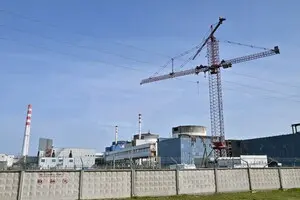
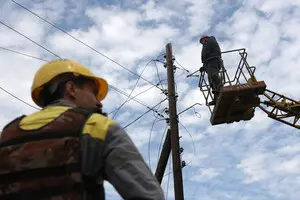
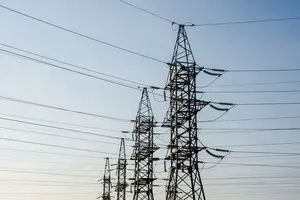
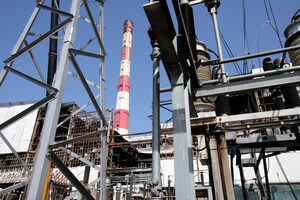

 Login with Google
Login with Google